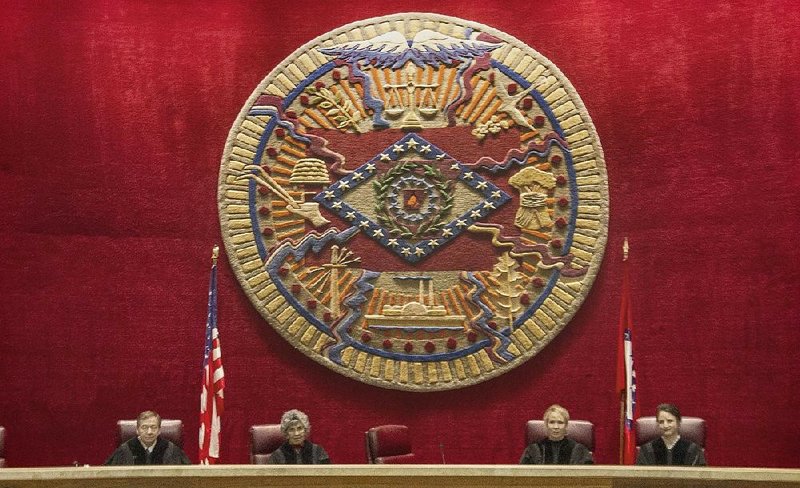FAYETTEVILLE -- The Arkansas Supreme Court today refused a request to reconsider its earlier ruling that Fayetteville cannot enforce an ordinance banning discrimination based on sexual orientation or gender identity.
City Attorney Kit Williams asked the court to re-hear the case after it ruled last month that the city can't enforce the measure.
Williams said today's decision wasn't a surprise because officials knew getting a re-hearing was a long-shot. Williams said the ruling effectively shuts the door on the city's state court options.
"Certainly, I'm going to speak with the city council and also with the intervening defendants," Williams said. "The only possibility of an appeal would be to prepare a petition for a writ of certiorari with the U.S. Supreme Court. It wouldn't be as long a shot as another re-hearing, but it'd be much more expensive to do that. Whether or not we feel like that's what we want to do, I'm not sure, and I don't think anybody has made a decision on that yet."
The court in February reversed and dismissed a Washington County judge's decision to allow Fayetteville to continue enforcing its anti-discrimination ordinance while the city challenged the constitutionality of a 2015 law preventing cities and counties from enacting protections not covered by state law.
Arkansas' civil rights law prohibits discrimination on the basis of race, religion, gender, national origin and disability, but not sexual orientation or gender identity.
The state Supreme Court in 2017 ruled the ordinance violates a state law involving intrastate commerce. The law seeks to ensure businesses are subject to the same nondiscrimination rules across the state, regardless of the municipality. Citing that decision, justices in February reversed a ruling by Washington County Circuit Judge Doug Martin and dismissed the case.
The high court didn't rule whether the state law is constitutional, which is why Williams asked for a re-hearing.
After deeming the city's ordinance violated state law, justices remanded the case in 2017 to Martin, who denied a motion by Attorney General Leslie Rutledge to halt the ordinance.
Martin's decision to allow the continued enforcement of the ordinance was the reason the case wound up on appeal back before the Supreme Court.
Other cities, such as Eureka Springs and Little Rock, that also have ordinances protecting lesbian, gay, bisexual and transgender residents said they would continue to enforce their ordinances because other state laws, including an anti-bullying statute, mention gender identity and sexual orientation.
Fayetteville voters approved the Uniform Civil Rights Protection Ordinance in September 2015.
Fayetteville's ordinance lets lesbian, gay, bisexual and transgender residents appeal to the city if they are fired from a job or evicted because of possibly discriminatory reasons. A commission was set up to take up such cases, but no complaints were ever filed.
Legal Lingo
Writ of certiorari
An order a higher court issues in order to review the decision and proceedings in a lower court and determine whether there were any irregularities. When a court issues a writ or certiorari it is referred to as “granting certiorari”, or ‘cert.’ When the U.S. Supreme Court orders a lower court to transmit records for a case for which it will hear on appeal, it is done through a writ of certiorari. Certiorari is the common method for cases to be heard before the U.S. Supreme Court since it has specific jurisdiction over a very limited range of disputes. A supreme court has power to review the proceedings of all lower tribunals and to rule upon their authority to hear the case and their decisions on questions of law.
Source: uslegal.com
NW News on 03/15/2019

